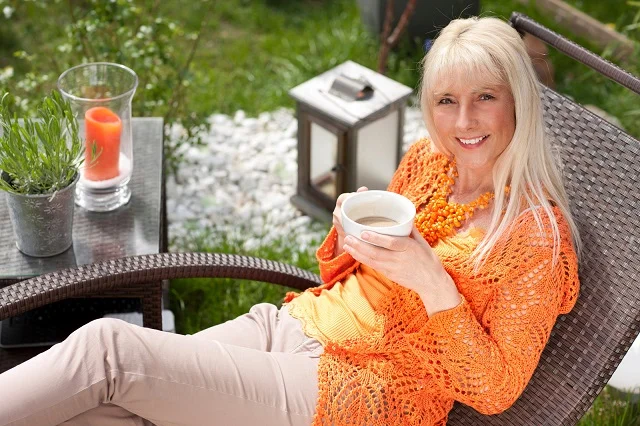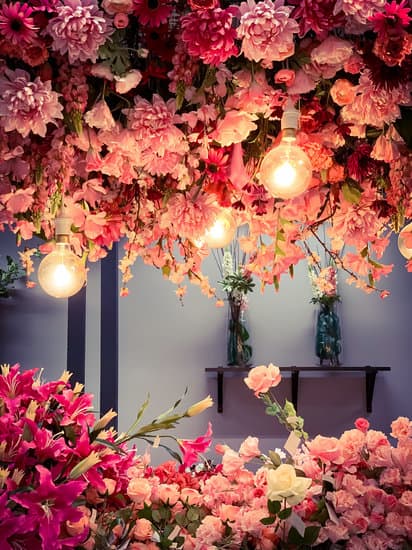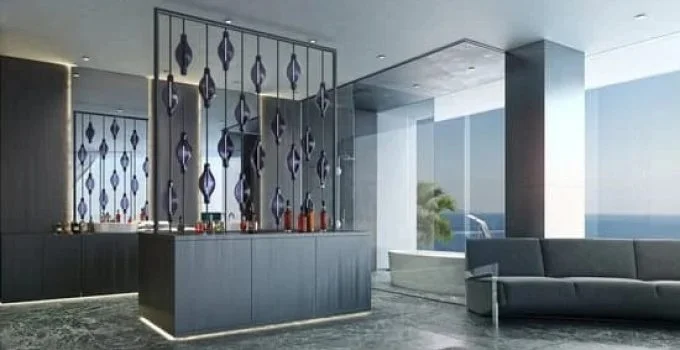Having a beautifully decorated garden at home is a wonderful way to create a relaxing and inviting outdoor space. A well-designed garden not only adds aesthetic appeal to your property but also offers numerous benefits for your well-being.
In this article, we will explore the art of decorating gardens, discussing everything from assessing your space and choosing the right decorations to enhancing with plants, lighting up your garden, incorporating furniture and outdoor accessories, DIY decor projects, and maintenance. By the end of this guide, you’ll have all the inspiration and knowledge you need to transform your garden into a stunning oasis that reflects your personal style.
When it comes to creating a visually appealing garden, there are several reasons why it’s worth investing time and effort into decoration. Firstly, an attractively designed garden can significantly increase the value of your property. Potential buyers or guests are likely to be impressed by a well-maintained and thoughtfully decorated outdoor area.
Additionally, studies have shown that spending time in nature can have positive effects on mental health and overall well-being. A beautiful garden with carefully selected decorations can provide a peaceful sanctuary where you can relax, unwind, and connect with nature right at home.
Before diving into the world of garden decor, it’s important to assess your space properly. Take a look at the size, shape, and overall layout of your garden to determine which areas have potential for decoration or enhancement. Consider identifying focal points or prominent areas that will benefit from some visual interest or attention. Understanding your own style preferences will also guide you in selecting decorations that suit both your taste and the theme of your garden.
Creating an eye-catching outdoor space starts with having a clear understanding of what you want to achieve through decoration. The following sections will provide guidance on choosing suitable decorations for various aspects of your gardening journey while considering factors such as style coherence,color schemes,and budgetary needs.Enjoy getting creative as you transform every nook and cranny into an inviting and aesthetically pleasing garden space.
Assessing Your Space
When it comes to decorating your garden, it is crucial to assess your space before diving into the decoration process. This will help you make informed decisions and ensure that your garden decor truly enhances the overall aesthetic. Follow these steps to effectively evaluate the size, shape, and layout of your garden:
- Evaluate the Size: Start by measuring the dimensions of your garden. This will give you a clear understanding of how much space you have to work with. Knowing the size of your garden will help you determine what types of decorations will fit comfortably without overwhelming the space.
- Assess the Shape and Overall Layout: Take a walk around your garden and observe its shape and layout. Is it a wide rectangular space or a narrow strip along one side of your property? Understanding the shape of your garden will guide you in selecting decorations that complement its natural features.
- Identify Focal Points: Every garden has certain areas that naturally draw attention or act as focal points. These can be existing features such as trees, shrubs, or architectural elements like pergolas or gazebos. Identify these focal points in your garden so that you can enhance them with appropriate decorations.
- Determine Your Style: Consider your personal style and preferences when assessing your space. Are you drawn towards a modern and minimalist look or do you prefer a more traditional and ornate feel? By determining your style, you can align your decor choices with your overall aesthetic vision for the garden.
Once you have assessed your space thoroughly, you will have a solid foundation for decorating your garden in a way that maximizes its potential beauty and functionality. The next step is to choose the right decorations that seamlessly blend with the overall theme and colors of your garden décor while ensuring longevity.
Choosing the Right Garden Decorations
When it comes to decorating your garden, choosing the right garden decorations is crucial to creating a cohesive and visually appealing outdoor space. There are various types of garden decorations to consider, such as statues, fountains, bird feeders, and wind chimes. Here are some tips to help you select the perfect garden decorations for your space:
- Determine Your Overall Garden Theme: Before purchasing any decorations, it’s important to determine the overall theme or style of your garden. Are you going for a modern and minimalist look? Or perhaps a more rustic and natural aesthetic? Understanding your preferred style will help guide your choices when it comes to selecting decorations that complement your garden.
- Consider Colors and Materials: Think about the colors present in your garden and choose decorations that harmonize with them. If you have vibrant flowers or colorful foliage, consider opting for more neutral-colored decorations so they don’t clash. Additionally, take into account the materials used in the decorations. Ensure that they are durable and weather-resistant, especially if you live in an area with harsh weather conditions.
- Budget-Friendly Options: Garden decorations can range in price from affordable to quite expensive. Determine your budget beforehand and look for high-quality options within that range. You can find budget-friendly garden decorations at local nurseries or home improvement stores, as well as online marketplaces.
- Personalize with DIY Projects: If you want to add a personal touch to your garden decor while saving money, consider trying some do-it-yourself projects. Create unique planters using repurposed items like old buckets or wooden crates. Paint rocks with inspirational quotes or patterns and place them strategically throughout your garden. The possibilities are endless when it comes to DIY garden decor projects.
Remember, the key is to choose garden decorations that enhance the overall aesthetic of your outdoor space while reflecting your personal style and preferences. Take the time to assess different options available before making any purchases, and most importantly, have fun with the process of decorating your garden.
Enhancing with Plants
One of the most essential aspects of decorating a garden is choosing and arranging plants. Plants not only add beauty and visual interest to your garden, but they also promote a natural and tranquil atmosphere. When selecting plants for decorative purposes, it is important to consider various factors such as flowering times, growth habits, and suitability to your climate and specific garden conditions.
Flowering plants are a popular choice for adding vibrant colors and creating focal points in the garden. Whether you prefer annuals or perennials, there are countless options available to suit your taste and style. Consider incorporating a mix of early-blooming, mid-season blooming, and late-blooming plants to ensure a continuous display of flowers throughout the growing season.
In addition to flowering plants, ornamental grasses can add texture and movement to your garden design. Their graceful foliage sways in the wind, creating an enchanting effect. Some varieties even change color throughout the seasons, providing additional visual interest. Clambering climbers such as ivy or clematis are excellent choices for adding vertical dimension to your garden by growing on trellises or walls.
To create an aesthetically pleasing arrangement, it is important to consider variations in height, texture, and color when placing plants in your garden. Incorporate borders or groupings of plants with different heights to add depth and structure. Mix foliage colors and textures by including both broad-leafed and fine-leafed plants.
Overall, selecting the right combination of plants will depend on your personal preferences, climate considerations, and desired effect. Take some time to research compatible plant species that thrive in your local area for better chances of success. Remember that gardening is an ongoing process; be open to experimenting with different plant arrangements over time as you discover what works best for your unique space.
| Aspect | Considerations |
|---|---|
| Flowering plants | Choose a mix of early, mid-season, and late-blooming varieties for a continuous display of flowers. Consider suitability to your climate. |
| Ornamental grasses | Add texture and movement to your garden with these graceful plants. Some varieties change color throughout the seasons. |
| Climbers | Grow climbers on trellises or walls to add height and dimension to your garden design. |
| Aesthetic arrangement | Vary height, texture, and color when placing plants in your garden. Mix foliage colors and textures for visual interest. |
Lighting Up Your Garden
How to strategically use lighting to create ambiance and highlight specific areas or features in your garden.
Lighting plays a crucial role in enhancing the overall atmosphere and visual appeal of your garden. By strategically incorporating different types of lighting fixtures, you can create a warm and inviting ambiance while also showcasing specific areas or features within your garden. Here are some tips for lighting up your garden effectively:
- Determine Your Lighting Goals: Before selecting lighting fixtures, consider what you want to achieve with your garden lighting. Do you want to create a cozy seating area, highlight a water feature, or illuminate pathways for safety? Identifying your goals will help you choose the right types of lighting and determine their placement.
- Choose the Right Type of Lighting: There are various types of garden lighting options available, each offering different effects. String lights are popular for creating a soft and magical glow, while lanterns can add a charming touch to your garden’s aesthetic. Spotlights are ideal for highlighting focal points or architectural elements.
- Position and Install Lighting Fixtures Properly: The placement of your lighting fixtures is crucial for achieving the desired effect. Consider the angle and direction in which you want the light to shine, ensuring it enhances the features you want to highlight. For example, placing spotlights at the base of a tree can create beautiful upward illumination.
- Ensure Safety and Energy Efficiency: When installing outdoor lighting, it’s essential to prioritize safety and energy efficiency. Use outdoor-rated fixtures that are waterproof and durable enough to withstand various weather conditions. Additionally, opt for LED lights as they consume less energy and have a longer lifespan compared to traditional bulbs.
By following these tips, you can transform your garden into an enchanting space that can be enjoyed both during daylight hours and in the evening.
| Types of Garden Lighting | Description |
|---|---|
| String Lights | Creates a soft and magical glow, perfect for creating a cozy atmosphere. |
| Lanterns | Adds charm to your garden’s aesthetic and provides versatile lighting options. |
| Spotlights | Ideal for highlighting focal points or architectural elements in your garden. |
Incorporating Furniture and Outdoor Accessories
Selecting Suitable Outdoor Furniture
When it comes to decorating your garden, incorporating furniture can greatly enhance both the functionality and aesthetics of the space. The right outdoor furniture pieces can create comfortable areas for relaxation and socialization, while also adding style and personality to your garden. When selecting outdoor furniture, consider the following factors:
- Purpose: Determine how you plan to use the furniture in your garden. Are you looking for a dining area where you can enjoy meals outdoors? Or do you envision a cozy nook where you can read a book and unwind? By identifying the purpose of the furniture, you can choose pieces that best suit your needs.
- Material: Opt for weather-resistant materials when selecting outdoor furniture. Materials like teak, aluminum, wrought iron, and synthetic wicker are known for their durability and ability to withstand different weather conditions. Ensure that the materials used are easy to maintain and resistant to fading or rusting over time.
- Comfort: Prioritize comfort when choosing outdoor furniture. Look for cushioned seating options made with high-quality outdoor fabrics that are resistant to water and UV rays. Test out the furniture before purchasing it to ensure that it feels comfortable and supportive.
Importance of Weather-Resistant Materials and Proper Maintenance
To prolong the lifespan of your outdoor furniture, it is essential to select materials that are designed to withstand various weather conditions. Additionally, proper maintenance is crucial in keeping your furniture looking its best year after year. Here are some tips on maintaining your garden furniture:
- Cleaning: Regularly clean your outdoor furniture using mild soap or specialized cleaning solutions recommended for the specific material of your furniture. Avoid using harsh chemicals or abrasive cleaners as they may damage or discolor the finishes.
- Storage: If possible, store your outdoor furniture during inclement weather or during seasons when they won’t be used frequently. Alternatively, invest in furniture covers to protect them from the elements when not in use.
- Maintenance: Pay attention to any signs of wear and tear, such as loose screws or fading finishes. Take prompt action to tighten hardware, repair any damages, or apply protective coatings when necessary.
- Seasonal Changes: Consider how your outdoor furniture will be affected by seasonal changes. For example, during hot summer months, providing shade solutions like umbrellas or pergolas can protect your furniture from excessive sunlight exposure.
Adding Additional Outdoor Accessories
In addition to furniture, incorporating outdoor accessories can further enhance the style and comfort of your garden. These accessories can include cushions, rugs, shade solutions, and decorative items that reflect your personal taste and preferences. Here are some suggestions for adding extra flair to your garden:
- Cushions: Outdoor pillows and seat cushions not only add a pop of color to your furniture but also make it more comfortable. Look for cushions made with fade-resistant fabrics designed for outdoor use.
- Rugs: Outdoor rugs can define specific areas in your garden, such as seating or dining spaces. Choose rugs made of materials that can withstand exposure to moisture and sunlight.
- Shade Solutions: Depending on the climate in your area, consider adding shade structures like umbrellas, pergolas, or retractable awnings to provide relief from direct sunlight while enjoying your outdoor space.
- Decorative Elements: Personalize your garden with decorative items such as lanterns, artwork, wind chimes, or planters that align with your garden’s theme or overall aesthetic.
By carefully selecting suitable outdoor furniture and incorporating complementary accessories in your garden decor scheme, you can transform it into an inviting and stylish oasis that reflects your unique style while still maintaining functionality and comfort.
DIY Garden Decor Projects
In addition to purchasing garden decorations, creating your own DIY projects can add a personal touch and unique flair to your garden decor. Not only is it a cost-effective option, but it also allows you to express your creativity and showcase your individual style. Here are some inspiring DIY garden decor projects that you can try:
- Homemade Planters: Create custom planters using materials like old wooden crates, tin cans, or even repurposed household items. Paint them in vibrant colors or create a distressed look for a rustic feel. You can also personalize the planters with stencils, decals, or hand-painted designs.
- Garden Signs: Add charm to your garden by making your own signs. Use reclaimed wood or driftwood as the base and paint them with welcoming words or quotes. You can also experiment with different fonts and decorative elements to match your garden’s theme.
- Hanging Baskets: Upgrade your hanging baskets by adding a personal touch. Wrap the chains with colorful ribbons or twine for an extra decorative touch. Fill the baskets with cascading flowers or herbs for a stunning display.
- Stepping Stones: Create unique stepping stones using molds and concrete mixtures. Embed pebbles, shells, or mosaic tiles into the surface to add visual interest and make each step feel like an artistic experience.
- Vertical Gardens: Utilize vertical space in your garden by building your own vertical planter wall. Use recycled pallets or install trellises for climbing plants like ivy or honeysuckle.
When engaging in DIY projects for your garden decor, it’s important to use durable materials that can withstand outdoor conditions such as weather-resistant paints and sealants if necessary. Remember that gardening is supposed to be fun and therapeutic; don’t be afraid to experiment and let your creativity shine through these DIY projects.
By adding homemade crafts to enhance your garden, you will not only add your personal touch but also create a space that truly reflects your style and personality. Happy crafting.
Maintenance and Seasonal Updates
Regular maintenance is essential to keep your garden decor looking pristine and ensure that it continues to enhance the beauty of your outdoor space. By following a few simple steps, you can keep your garden in top shape and make necessary adjustments for seasonal changes.
Maintenance Tasks
To maintain the overall appearance of your garden, regular tasks such as pruning, weeding, and cleaning are crucial. Pruning helps control the growth of plants and keeps them in shape. It also promotes healthy growth and allows more sunlight to reach the lower parts of the plant.
Weeding is important to remove unwanted plants that may compete for nutrients with your desired plants or ruin the aesthetic appeal of your garden. Regularly cleaning your garden decorations will help prevent dirt and grime buildup, keeping them looking fresh and vibrant.
When performing maintenance tasks, it’s important to use the proper tools and techniques. Invest in quality pruning shears for trimming plants effectively without damaging them. Use a hand trowel or fork for weeding, ensuring that you remove the entire root system. For cleaning garden decorations, gentle soap and water may be sufficient for most materials. However, it’s best to refer to specific care instructions provided by manufacturers.
Seasonal Updates
Seasonal updates are an excellent way to refresh your garden decor according to changes in weather and outdoor conditions. Adjusting plant arrangements based on seasonal bloom times ensures that you have a variety of flowers throughout the year. Consider incorporating seasonal decor elements like wreaths or garlands during special times, such as Christmas or Halloween.
Another aspect of seasonal updates is refreshing lighting elements. As daylight hours change throughout the year, adjusting when your lights turn on or adding additional lighting fixtures can create a different ambiance in your garden. This can be particularly useful during shorter winter days when more artificial light might be needed.
Don’t forget about incorporating seasonal furniture accessories as well. Swap out cushions or add blankets during cooler months to create a cozy atmosphere. Consider investing in a weather-resistant cover for your furniture during harsh weather conditions to prolong its lifespan.
By completing regular maintenance tasks and making seasonal updates, you can ensure that your garden decor remains visually appealing and functional year-round. Regular care will keep your garden looking its best, while seasonal changes will keep it interesting and adaptable to different times of the year. With these tips in mind, you’ll be able to enjoy a stunning and ever-evolving garden right at home.
Conclusion
In conclusion, decorating your garden at home is a worthwhile endeavor that can greatly enhance the overall ambiance and beauty of your outdoor space. Throughout this article, we have discussed various aspects of garden decoration, from assessing your space to choosing the right decorations, incorporating plants and lighting, adding furniture and accessories, engaging in DIY projects, and maintaining your garden decor.
By following the tips and ideas presented here, you can transform your garden into a truly captivating and inviting space. A visually appealing garden not only increases the value of your property but also contributes to your personal well-being. Spending time in a beautifully decorated garden can provide relaxation, stress relief, and a connection with nature.
So don’t hesitate to get creative and start implementing these ideas in your own garden. Whether you have a small balcony or an expansive yard, there are always ways to enhance your outdoor space. Remember to choose decorations and plants that reflect your style and preferences while considering factors such as climate suitability and budget.
Lastly, regular maintenance is key to keeping your garden decor looking its best. Take the time to clean, prune, weed, and update your decorations seasonally. Embrace the opportunity to switch up plant arrangements or incorporate seasonal decor for added interest.
By putting effort into decorating your garden at home, you will be rewarded with a beautiful oasis that brings joy to both yourself and others who visit. So go ahead – make the most out of your outdoor space by transforming it into something truly special with thoughtfully chosen decorations, thriving plants, cozy furniture, captivating lighting, DIY projects made with love, and consistent maintenance. Your transformed garden will undoubtedly leave a lasting impression on anyone who sees it.
Frequently Asked Questions
How do you decorate your garden?
The way I decorate my garden is by incorporating a variety of elements that add color, texture, and visual interest. One key aspect is selecting and arranging a diverse range of plants, including flowers, shrubs, and trees, to create an appealing and harmonious composition. In addition to plants, I love incorporating different types of outdoor furniture such as chairs, benches, or even a cozy swing to provide both aesthetics and functionality.
Adding decorative touches like garden statues or sculptures can also enhance the overall design. Lastly, I like to include features such as pathways or stepping stones that guide visitors through the garden and create a sense of exploration.
What can I put in my garden to decoration?
When it comes to adding decorations to your garden, the options are practically endless! There are numerous items you can incorporate to beautify your outdoor space. For example, hanging baskets filled with vibrant flowers can instantly add color and charm.
Decorative pots or planters in various shapes and sizes can be placed strategically around your garden or patio to display different plants or even herbs if you enjoy cooking. Trellises or arbors covered with climbing plants can create vertical interest while also adding privacy. Additionally, birdhouses or bird feeders not only attract some beautiful feathered friends but also serve as charming focal points.
How can I make my garden look luxurious?
To make your garden look luxurious, there are several strategies you may consider implementing. First off, creating a well-maintained landscape is crucial – this includes regularly trimming hedges, weeding flower beds, and ensuring the lawn is neatly mowed. Secondly, investing in high-quality materials for areas such as walkways or patios can instantly elevate the overall look of your garden.
Opting for natural stone paving or elegant tiles adds an air of sophistication. Incorporating water features like fountains or ponds can bring a sense of tranquility and elegance that epitomize luxury gardens as well. Finally, thoughtful lighting choices are vital – using soft outdoor lighting fixtures can create an enchanting atmosphere after sunset, highlighting key features and extending the garden’s beauty into the evening hours.

Hello, lovely readers! I’m Sheila Collins, and I’m delighted to be your trusted guide on this exciting journey of home improvement, design, and lifestyle. As the founder and editor-in-chief of Home Guide Blog, I’m passionate about all things related to homes, and I’m here to share my knowledge, experiences, and insights with you.




